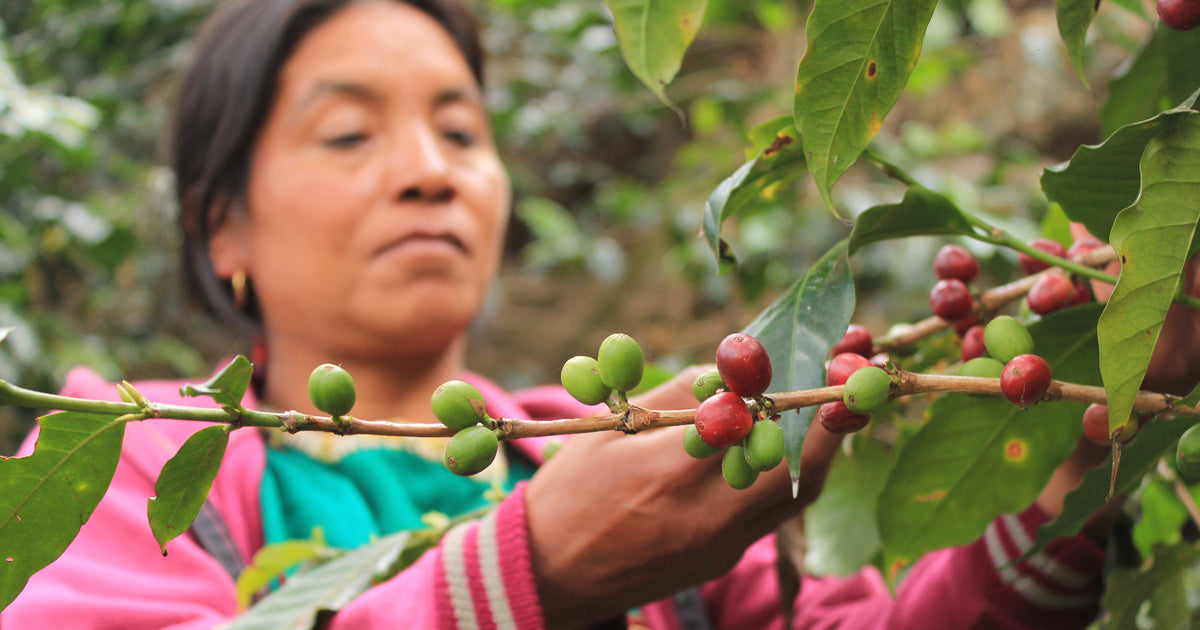FAIR Talks | KISHÉ Foods

On every 12oz bag of Kishé coffee, you’ll find a version of a famous Juan Sisay painting on the label. In true Mayan fashion, the scene holds vibrant colors and depicts a scene of deep tradition. Throughout the generations, coffee farming has been one of Guatemala’s most common industries. As the story of the painting goes, most of the farmers are looking down because they are deep in their work, while one or two looked up at the plane flying above them to get an aerial view. Most coffee farmers in Guatemala sell their green beans the way they always have, earning 13 cents per pound, while FECCEG (Federación Comercializadora de Café Especial de Guatemala) exists to provide an alternative perspective of fair wages and community empowerment. And Kishé exists to give a lift to FECCEG by widening access to the global marketplace. By selling the members’ coffee on retail, Kishé has taken the farmers’ profits to a soaring $2.80 per pound.
FECCEG trains their participating cooperatives in leadership, fair trade certification, creative ways to generate income, quality control and marketing assistance. With a third of their shareholder’s farms being owned and operated by women, they also take special care to ensure women are given management training and leadership roles. The pink label coffee embodies this value as it is solely grown by women from start to finish. With the fair-trade premium entrusted to them, local farmers made a great investment for the future of coffee farming in Guatemala. For years, the whole country has only used one outdated printer for the burlap bag necessary to export their coffee beans. When it broke, the bottleneck created pushed production to a screeching halt. Through purchasing a new printer, the farming cooperatives were able to ramp up their own production while creating another source of income by printing bags for other farmers.
The creativity and innovation indigenous to the human spirit are alive and well in FECCEG’s member farms. There seem to be as many possibilities for growth as there are varieties of flavors in the Guatemalan coffee industry. The biggest difficulty Kishé faces are convincing farmers outside FECCEG that they should get a fair price for their coffee, but if they see it work for other farmers, they will join the initiative. Kishé is poised and ready for market growth because as they make more sales, more cooperatives would see the benefit of fair trade and join FECCEG, increasing their capacity to expand even more in the global marketplace.
As more farmers lift their eyes to this new way of coffee farming, more economic stability and the freedom to exercise their entrepreneurial muscles would soon follow. Kishé
believes “looking up” could be one of the best things these farmers could do to honor their hard-working ancestors who paved the way for them. Contrary to uprooting tradition, the FECCEG and Kishé partnership seek to propel forward what the coffee farmers of generations past may have always been working toward…sustainable growth and the improvement of the daily lives of their communities.
. . .
To learn more, visit kishefoods.com.
